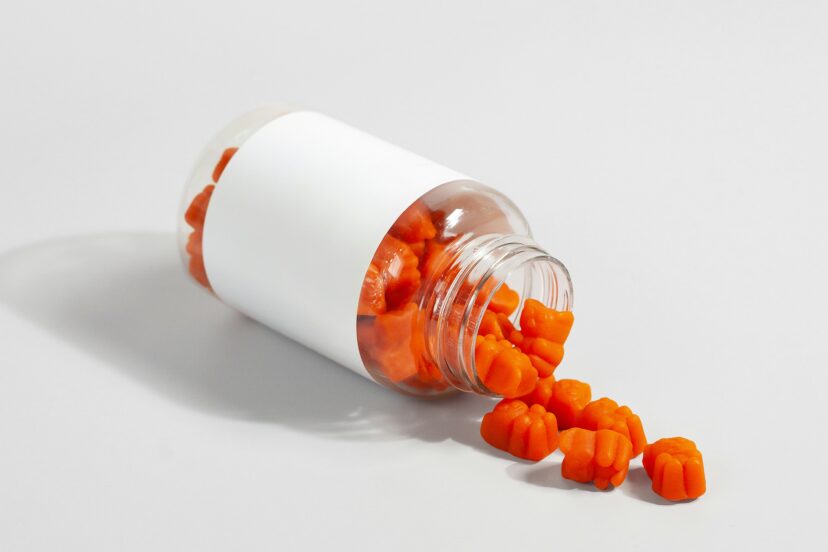Essential Brain Supplements for Every Life Stage
We may earn a commission for purchases made using our links. Please see our disclosure for more details.
As we age, our brain’s needs evolve—yet most of us don’t adjust our nutrition to match. Cognitive issues can appear at any stage of life, from teenagers who have trouble focusing to adults who are burned out and elderly people who are worried about losing their memories. Ignoring these needs can result in brain fog, poor attention, and accelerated cognitive decline, which can affect long-term mental clarity, professional advancement, and academic success. In order to help you remain mentally robust, focused, and sharp for years to come, this article deconstructs the key brain supplements for each stage of life, emphasizing three specific supplements for each age group that are supported by science.
Why Brain Health Should Be a Lifelong Priority
Consider the brain to be a smartphone. It keeps you connected, organizes your apps, and stores your info. However, unless you keep it charged, updated, and properly protected, even the best phones eventually slow down. The appropriate brain vitamins can help with that.
They aren’t magic bullets or quick fixes. Rather, they are dietary aids that enhance brain function, bridge nutritional gaps, and gently and effectively help your mind mature like great wine.
Teen Years (13–19): Laying the Groundwork
Your brain is still developing while you are a teenager. Learning is accelerating, emotional regulation is growing, and neural connections are being formed. Now is the ideal moment to provide the brain the assistance it needs.
1. Omega-3 Fatty Acids (DHA + EPA)
Why it matters: These fatty acids, especially DHA, are the building blocks of brain cells. They improve memory, attention, and emotional health.
Best source: Fish oil or algae-based supplements.
2. Magnesium
Why it matters: Magnesium helps regulate mood, sleep, and focus—three major pain points during the high-stress teenage years.
Pro tip: Magnesium glycinate is gentle on the stomach and highly absorbable.
3. Vitamin D3
Why it matters: Essential for cognitive function and mood. Teens who spend more time indoors may have low levels, which can affect brain development.
Fun fact: Vitamin D acts more like a hormone than a vitamin—it affects over 200 genes.

Young Adulthood (20s–30s): Focus, Energy & Resilience
Your twenties and thirties are often packed with career changes, higher education, and family planning. Your brain needs fuel for decision-making, mental endurance, and stress resilience.
4. B-Complex Vitamins (B6, B9, B12)
Why it matters: These vitamins help with energy production, nerve health, and memory retention. They’re key players in reducing brain fog and boosting focus.
Bonus: They also lower homocysteine levels, which can damage brain cells over time.
5. L-Theanine + Caffeine
Why it matters: This duo provides clean, calm focus without the crash. L-theanine smooths out the stimulation of caffeine, helping you stay alert and balanced.
Use it when: You’re cramming for exams, sitting through meetings, or powering through creative work.
6. Rhodiola Rosea
Why it matters: An adaptogen that fights fatigue, boosts mental performance, and supports emotional well-being. Perfect for high-stress lifestyles.
Think of it as: Your brain’s stress-relief coach.

Middle Age (40s–50s): Protecting Memory & Mental Agility
In your forties and fifties, you might notice the occasional brain fog or forgetfulness. But it’s not just about memory—it’s also about maintaining speed, clarity, and emotional balance as life gets busier.
7. Lion’s Mane Mushroom
Why it matters: It stimulates nerve growth factor (NGF), helping to regenerate brain cells and improve cognitive function.
Metaphorically: It’s like Miracle-Gro for your neurons.
8. Phosphatidylserine
Why it matters: This phospholipid helps protect brain cell membranes and enhances communication between neurons.
Clinical support: It’s been shown to support memory, especially in aging adults.
9. Curcumin (Turmeric Extract with Black Pepper)
Why it matters: A powerful anti-inflammatory that helps reduce oxidative stress and supports long-term brain health.
Tip: Look for versions with piperine (black pepper extract) to increase absorption.

Senior Years (60+): Preserving Clarity and Function
As we age, the brain becomes more vulnerable to decline. That doesn’t mean it’s inevitable—far from it. With the right support, you can stay sharp, vibrant, and mentally independent.
10. Methylcobalamin (Active Vitamin B12)
Why it matters: B12 supports nerve function and protects against memory loss. Older adults often have absorption issues, making supplementation crucial.
Watch out for: Fatigue, confusion, or brain fog—these may signal low B12.
11. Huperzine A
Why it matters: It slows the breakdown of acetylcholine, a neurotransmitter linked to memory and learning. It’s also being studied for its potential in Alzheimer’s support.
How it works: Think of it as a memory gatekeeper.
12. NAD+ Precursors (NMN or NR)
Why it matters: NAD+ is essential for cellular energy and repair. These supplements support mitochondrial health and may help slow cognitive aging.
In a nutshell: They help your cells—and brain—feel younger.
What About Multivitamins?
Still unsure where to start? A high-quality multivitamin tailored to your age group can be a great foundation. While not targeted like the supplements above, it fills in essential nutritional gaps that may affect brain performance.
Tips for Taking Brain Supplements the Smart Way
- Start small. Introduce one supplement at a time so you can monitor effects.
- Stay consistent. Most benefits appear after several weeks of regular use.
- Pair with lifestyle habits. Sleep, hydration, exercise, and diet enhance results.
- Talk to your doctor. Especially important if you’re pregnant, nursing, or managing a health condition.
Supplements vs. Superfoods: Do I Need Both?
Supplements are concentrated and easy to dose, but real food should still lead the way. Brain foods like wild salmon, blueberries, nuts, leafy greens, and dark chocolate provide essential nutrients naturally. Think of supplements as the backup singers—your diet is the main act.
And if you’re exploring advanced options, nootropic peptides are gaining attention for their targeted cognitive benefits.
Teen Brain Development Backed by Science
During adolescence, the brain is in a critical growth phase, and the right nutrients can make a significant difference. Research shows that supplementing with omega-3 fatty acids (DHA and EPA) can enhance memory, learning, and emotional health in teens. A 2022 study in Frontiers in Nutrition highlights the role of DHA in supporting neural structure and reducing inflammation.
Additionally, magnesium supplementation has been linked to better sleep quality, reduced stress, and improved concentration—key for academic and emotional resilience. This is supported by a 2024 review in Nutrients, which underscores magnesium’s importance in adolescent cognitive performance and mood stability.
Summary
Your brain is your most valuable asset. Whether you’re navigating high school exams, powering through work deadlines, juggling family life, or enjoying retirement, your brain needs the right support.
The key is knowing what your brain needs at each stage of life—and acting on it. With just three targeted supplements per life phase, you can stay mentally sharp, emotionally balanced, and cognitively resilient.
Think of your brain like a garden: water it with good sleep, sunlight from positive relationships, and fertilize it with smart supplementation. Over time, you’ll grow not just knowledge—but wisdom.
FAQs
1. Can teenagers safely take brain supplements?
Yes, but only specific ones like omega-3s, vitamin D, and magnesium. Always consult a healthcare provider before introducing any supplement.
2. What’s the best time of day to take brain supplements?
Morning is ideal for energy-boosting supplements like B vitamins or Rhodiola. Calming ones like magnesium are best taken at night.
3. Do I need supplements if I eat a healthy diet?
Possibly not, but many people still have nutrient gaps due to food quality, stress, or digestion issues. Supplements can help bridge the gap.
4. Are there side effects to brain supplements?
Some supplements may cause mild effects like nausea or sleep disturbances. Always start slow and monitor how your body responds.
5. How long will it take me to notice results?
It varies. Some feel the effects within days (like L-theanine), while others, like Lion’s Mane or NAD+, may take weeks to months for full benefit.




